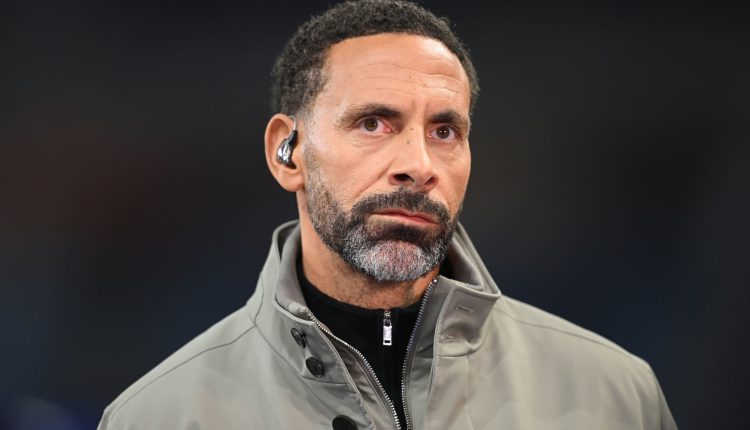After Chelsea’s match against Arsenal on Sunday, former Manchester United star Rio Ferdinand publicly criticized Chelsea winger Noni Madueke for his behavior following a substitution.
Madueke, who was replaced by Mykhailo Mudryk shortly after Gabriel Martinelli scored for Arsenal, responded by heading straight down the Stamford Bridge tunnel, missing Pedro Neto’s equalizing goal for Chelsea.
Although Madueke did eventually return to the bench, Ferdinand was unimpressed by the initial reaction, seeing it as a sign of poor discipline and disrespect to teammates.
He suggested that a “two-week fine” would be an effective lesson for the young player on the importance of team respect and professional conduct.
On his show *Rio Ferdinand Presents*, Ferdinand voiced his disappointment and compared Madueke’s reaction to the behavior of players he’d played alongside in the past, such as Danny Welbeck, Tom Cleverley, and Nani.
According to Ferdinand, none of those players would have displayed such disregard, particularly in the middle of an important match.
He emphasized that Madueke’s actions showed a lack of respect for his teammates and pointed out that in a typical situation, a senior player might have intervened and addressed the incident directly on the spot.
Owen Hargreaves, another former United player and Ferdinand’s colleague on the show, echoed these thoughts, sharing his experience under legendary manager Sir Alex Ferguson.
Hargreaves remarked that such behavior would never have been tolerated at Manchester United, particularly under Ferguson’s strict guidance.
This perspective highlighted how top-tier football clubs often cultivate an expectation of discipline and team unity that players are expected to uphold, regardless of age or status.
Ferdinand’s criticism extended beyond Madueke’s actions to Chelsea manager Enzo Maresca’s handling of the situation.
Ferdinand felt that Maresca should have been more assertive in addressing Madueke’s behavior rather than downplaying it.
While Maresca defended Madueke by arguing that such frustration is natural for players who wish to stay involved, Ferdinand suggested that, were he a manager, he would not tolerate such conduct.
Maresca’s perspective implied that frustration after being subbed is part of a player’s passion for the game, though Ferdinand was firm in his stance that this passion should still be shown respectfully toward the rest of the team.
This disagreement between Ferdinand and Maresca’s approaches highlights different management philosophies.
Ferdinand’s criticism reflects a more old-school approach, rooted in discipline and maintaining a united front during matches.
He appeared to feel that by downplaying Madueke’s reaction, Maresca might unintentionally allow such behavior to recur, which could disrupt the team’s cohesion.
Meanwhile, Maresca’s remarks seemed to suggest he views occasional frustration as normal, provided it doesn’t escalate into more disruptive actions.
